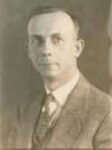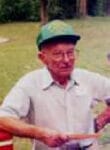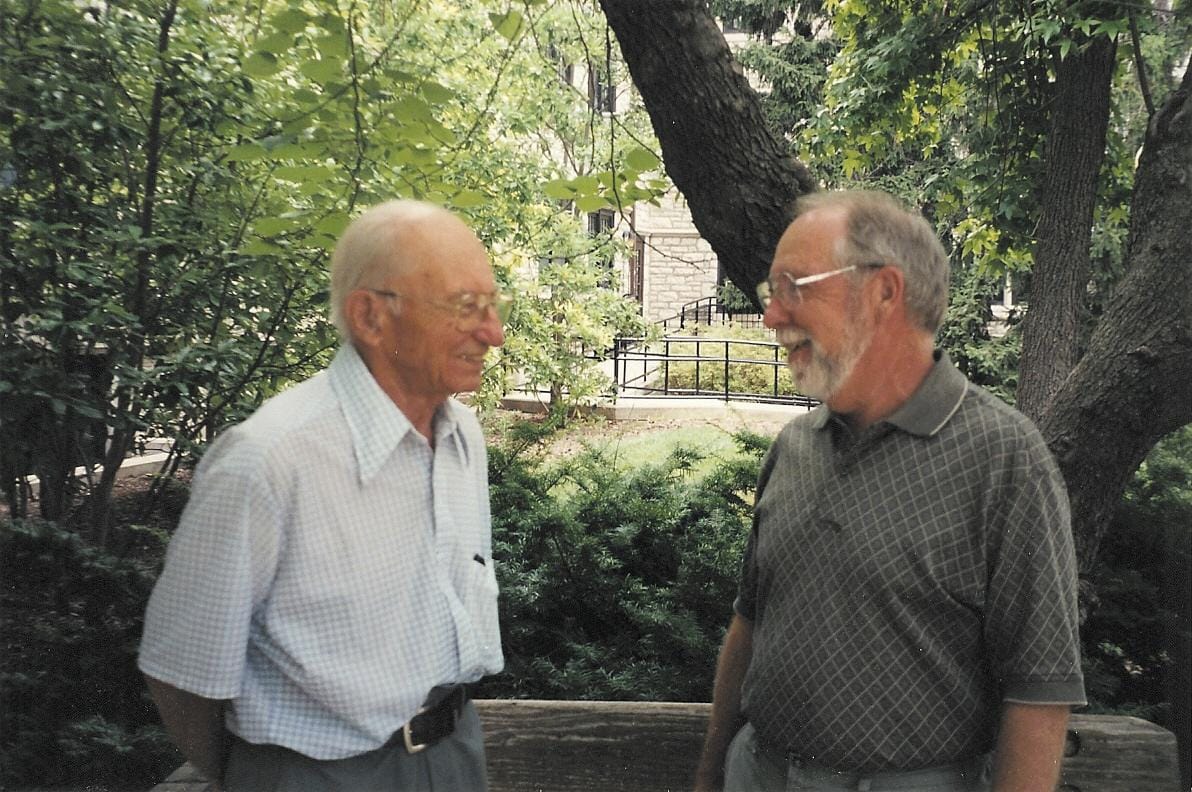Saving Rural Sociology's History A Retrospective on the Archivists and Historians Who Preserved the Field
Explore the legacy of rural sociology through the efforts of its dedicated archivists and historians.

C.E. Lively

John Holik

Will Goudy and John Holik

Julie Zimmerman
As three key figures in rural sociology were approaching retirement, each one had an interest in the field’s history and each one was contemplating how they might translate that interest into a post-retirement project.
Lowry Nelson beat everyone to the punch and began work on the only book-length treatment of the field’s history: Rural Sociology: Its Origin and Growth in the United States (1969).
Also wanting to write a book, Edmund deS Brunner focused on rural sociology’s early years in Growth of a Science: A Half-Century of Rural Sociological Research in the United States (1957).
The third person was C. E. Lively. While he also had an interest in rural sociology’s history he was faced with both Nelson and deS Brunner already working on their books. So, he turned to collecting primary documents, correspondence, and other materials important to rural sociology’s history and establishing the RSS Archives. Having done this, C. E. Lively became the first RSS Archivist.
Since then, 3 other persons have served as either Archivist or Historian for the Rural Sociological Society. After C. E. Lively came John A. Holik and then Willis J. Goudy, who was the first to hold the title of Historian. Today, the RSS Historian is Julie N. Zimmerman.
Work to save rural sociology’s history began in the mid-1950s. C. E. Lively led the effort as chair of the Special Committee on Historical Documents and called on RSS members to send in materials that should be saved. After an extensive search, the RSS entered into an agreement with the University of Missouri (where Lively was located) and established the Archives of the Rural Sociological Society. Today, this is still the location of the RSS archives which are managed by the Missouri State Historical Society.
As C. E. Lively’s age became more advanced, John Holik – Lively’s graduate student – began conducting more and more of the responsibilities of being the RSS Archivist. So much so that it was not long before Holik was listed alongside Lively as the “Associate Archivist.” Even though having functionally served as the RSS Archivist, it was not until Lively’s passing in 1969 that Holik accepted the official title.
John Holik continued as RSS Archivist for nearly 4 decades – throughout his career and even after. In the early 2000s with Holik long retired, the RSS Council agreed to resurrect and update the position of RSS Archivist to create the position of RSS Historian. With this new title came expanded responsibilities that included both preservation as well as serving as a public historian.
The first person to serve in the new position was Will Goudy at Iowa State University who worked with RSS Executive Director Ken Pigg to contact John Holik and sort through the mountains of materials he still had in his office. Goudy not only updated the RSS Archives, but since the Historian would no longer be co-located with the RSS archives, he compiled a separate set of files that would follow each new Historian. Goudy also began the tradition of having an Historian’s display at each RSS conference.
It took 2 years before Goudy finally convinced Julie N. Zimmerman to consider being the next RSS Historian. While only at mid-career, Zimmerman had had the unique experience of conducting research on the history of rural sociology ever since she was a graduate student. As she often says, her entire introduction to rural sociology came through its history. In 2009, Zimmerman finally agreed and became the first woman and the second youngest to serve RSS as its Archivist or Historian.
